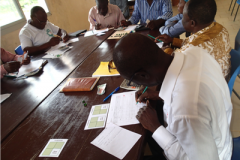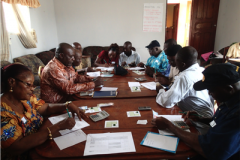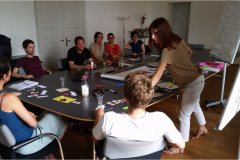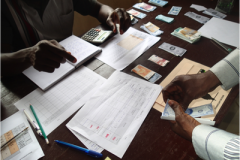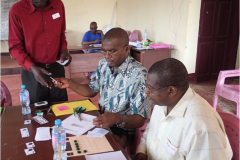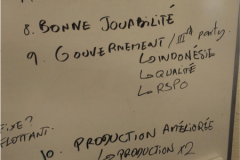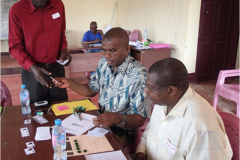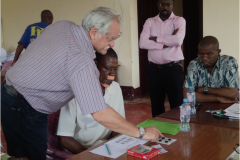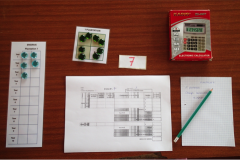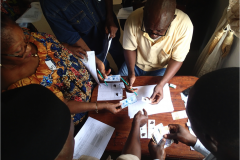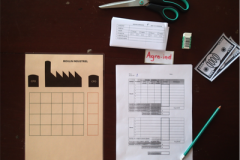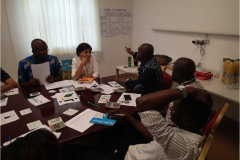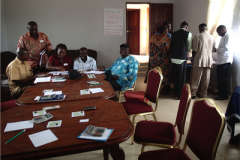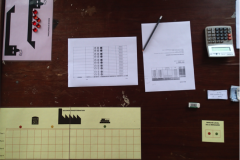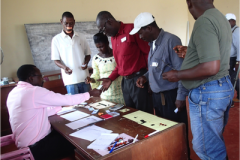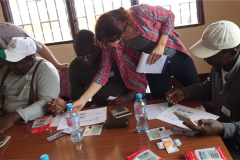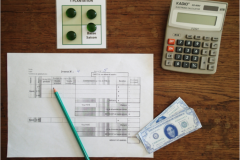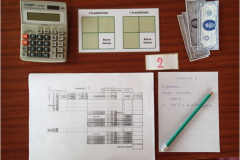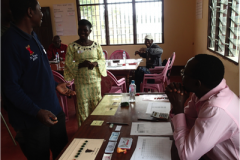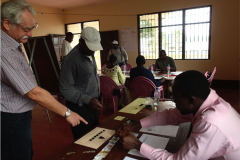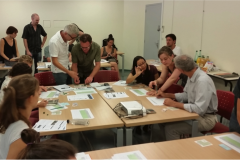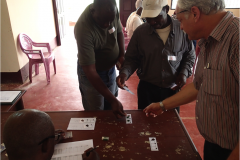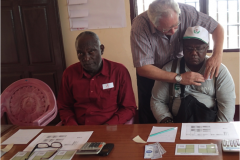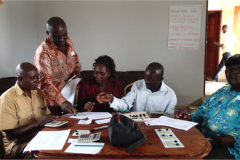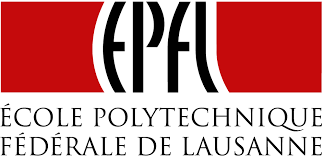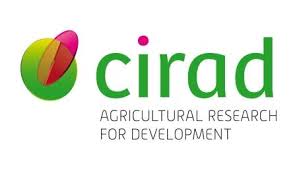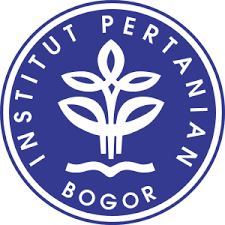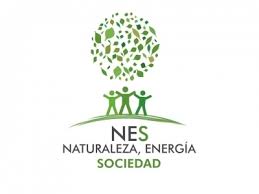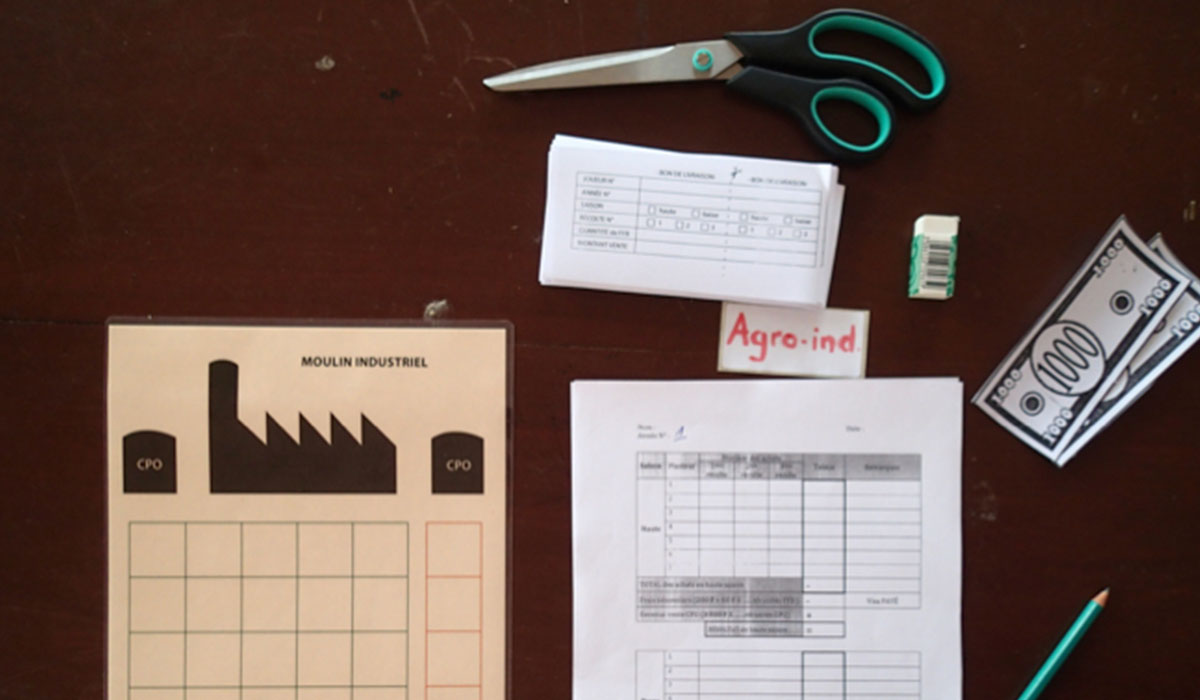
Cameroon: Game sessions with palm oil supply chain stakeholders
In August 2015, Patrice Levang, agro-economist at IRD (Institut de Recherche pour le Développement), and Eglantine Fauvelle, our consultant in agronomy, organized three role-playing game sessions with palm oil supply chain stakeholders in the south-west and central regions of Cameroon. In total, 28 oil palm smallholders, 3 extension officers and 5 representatives of PAMOL and CDC (Cameroon Development Corporation), which are two of the five companies processing fresh fruit bunches (FFB) into crude palm oil (CPO) in Cameroon, played CoPalCam, the game designed for Cameroon as part of the OPAL project.
These one-day workshops aimed at refining the model’s calibration and at stabilizing its rules. They also allowed collecting inputs from the participants in order for the game to better represent the key issues and realities faced by the stakeholders. In a nutshell, players agreed that the game accurately represents their main economic, logistic and organisational concerns, among which weak investment capacities, limited transportation facilities and other major constraints limiting FFB delivery to industrial mills during the peak season.
Besides the social validation of the model, these sessions facilitated discussions about the main challenges along the supply chain. In particular, most participants stated that they developed an increased understanding of the links between the level of CPO importations at the national level and the fluctuations of CPO price on the local domestic market. During collective debriefings, participants even suggested different avenues for solutions.
For the next step, a game session will be scheduled by Emmanuel Ngom (MINADER) and Durrel Halleson (WWF Yaoundé) with the Palm Oil Supply Chain Regulation Committee. This Cameroonian body, which involves representatives of the ministries of Finance, Trade and Agriculture, refiners and soap-industries, agro-industries and the main smallholders’ association (UNEXPALM), appears to be the ideal platform to explore various alternative solutions with a broader range of stakeholders. It is also a remarkable opportunity to up-scale the outputs and expected impacts of our CoPalCam model namely (i) to raise awareness of the impacts of individual decisions along the supply chain (ii) to generate thoughts about new behaviours, rules or alliances that could strengthen the performances and the resilience of the Cameroonian palm oil supply chain.
Location
Oil Palm Adaptive Landscapes (OPAL)
c/o Prof. Jaboury Ghazoul
Chair of Ecosystem Management
Department of Environmental System Sciences
ETH Zurich
Universitätstrasse 16
8092 Zürich
Switzerland

